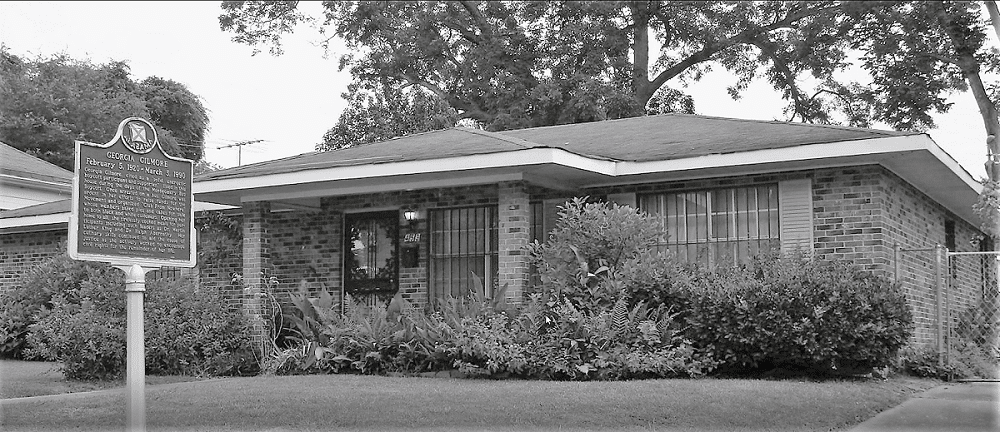Montgomery’s Georgia Gilmore fed the civil rights movement

Georgia Gilmore started boycotting Montgomery buses more than a year before Rosa Parks' arrest. Later, she cooked for those actively engaged in the civil rights movement, including Martin Luther King Jr. (Georgia Gilmore image courtesy of the Alabama Department of Archives and History; contributed)
The Montgomery Bus Boycott helped define the civil rights movement. The city’s blacks, angry over years of mistreatment and the arrest of Rosa Parks for refusing to relinquish her seat to a white man, quit riding city buses. They carpooled, rode wagons and mules and walked to work for more than a year before achieving victory.
The bus boycott also helped define Georgia Gilmore. The Montgomery mother of six, a cook at National Lunch Company, had quit riding the buses in October 1954, more than a year before Parks’ arrest.
“Gilmore had begun her own boycott after a Friday afternoon rush-hour confrontation with a white driver who shouted her down for entering the front door of the bus and drove off before she could walk around back,” John T. Edge wrote in “The Potlikker Papers, a Food History of the Modern South.”
Four days after Parks’ Dec. 1, 1955 arrest, thousands of Montgomery blacks packed into Holt Street Baptist Church and the surrounding streets, with loudspeakers set up to handle the overflow. They listened as 26-year-old minister Martin Luther King Jr. decried “the iron feet of oppression” and urged Montgomery blacks “to work and fight until justice runs down like water, and righteousness like a mighty stream.”
Gilmore was there that night for the first meeting of the Montgomery Improvement Association as blacks vowed not to ride city buses.

Georgia Gilmore’s home in Montgomery became a popular stopover for activists in the civil rights movement, who knew they would eat well there. (contributed)
Gilmore, a large and fiery woman who refused to put up with white bigotry, brought food to the weekly MIA meetings. She organized a group of black cooks and bakers called the Club from Nowhere who sold chicken dinners, fried fish, pork chops, greens, poundcakes and sweet potato pies to raise money to pay for gas and other costs of the carpool.
“In order to make the mass meeting and the boycott be a success and that keep the carpool running, we decided that the peoples on the southside would get a club and the peoples on the westside would get a club and so we decided that we wouldn’t name the club anything,” Gilmore said in a 1986 interview conducted by Blackside Inc. for the award-winning PBS documentary “Eyes on the Prize: America’s Civil Rights Years (1954-65).” “We’d just say it was the Club from Nowhere.”

Georgia Gilmore seated in the audience at Holt Street Baptist Church. (Alabama Department of Archives and History)
The Club from Nowhere allowed anonymity for the cooks, many of whom worked for whites, as well as for contributors to the cause, some of whom were white. The club was able to donate anywhere from $125 to $200 a week (about $1,150 to $1,850 in today’s dollars) to keep the carpool going, Gilmore said.
King, who called Gilmore “Tiny,” described her as “an unlettered woman of unusual intelligence.” During the boycott, King encouraged Gilmore to run a restaurant from her home, and it became a frequent stop for civil rights leaders when they visited Montgomery.
“Gilmore’s house became a clubhouse for King, who as his fame rose, even as white restaurants integrated, gravitated to the kitchen tables of friends,” wrote Edge, executive director of the Southern Foodways Alliance. “He wanted pigs’ feet and collards, the foods that sustained him in his youth. … When King arrived in Montgomery during the 1965 march from Selma, he beelined to Gilmore’s kitchen for pork chops.”
Twenty-five years later, on March 3, 1990, Gilmore died while she cooked for those who were commemorating the anniversary of the Selma to Montgomery march.
During Black History Month, Alabama NewsCenter is celebrating the culture and contributions of those who have shaped our state and those working to elevate Alabama today. Visit AlabamaNewsCenter.com throughout the month for stories of Alabamians past and present.





